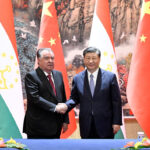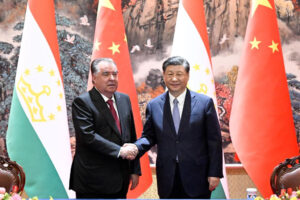Brazil’s economy is set to cool this year, a Reuters survey found, amid an intensifying tug of war between the government and some lawmakers over which sector should pick up the tab for adjustments needed to meet ambitious budget goals.
Gross domestic product (GDP) increased more than expected in 2023 partly due to improved investor optimism over Finance Minister Fernando Haddad’s efforts to rectify deep imbalances. But the picture on that front is now more mixed.
The country’s fiscal side “remains the weakest link among its macroeconomic fundamentals,” Rabobank analysts wrote in a report, warning of a possible rise in market risks if the government eventually admits a grimmer budget reality.
Growth in Latin America’s No.1 economy is set to decelerate to 1.6% in 2024 vs. 3.0% in 2023, according to the median forecast of 50 economists polled Jan. 8-18. Estimates for this year ranged between 0.4% and 2.5%.
On the one hand, public spending could give the economy an extra boost from decisions to pay accumulated federal debt that had been in limbo and to implement smaller cuts in a special federal investment scheme known as “PAC.”
“There are positive surprises with respect to recently approved fiscal measures, the settlement of accumulated court-ordered payments and spillover effects from the PAC program,” said Joao Leme, an analyst at Tendencias consultancy.
However, overall fiscal trends are starting to cause concern, as outlays to fund President Luiz Inacio Lula da Silva’s social plans continue to rise faster than federal revenues, despite different tax initiatives from Haddad.
Between January and November of 2023, the primary deficit reached 114.6 billion reais ($23 billion), reversing a 49.7 billion reais surplus for the year-ago period, with November’s result undershooting expectations again.
Further weighing on the budget, lawmakers overturned last month a presidential veto on a bill approved by Congress that handed fiscal waivers to companies and municipalities totalling around 27 billion reais.
In response, the government unveiled tax adjustments to limit benefits across various sectors through an executive order effective for four months, but still requires Congress approval to go beyond that period.
Also, the economic team began discussing the possibility of re-imposing unpopular taxes on imports worth up to $50, a measure likely to face complaints from retailers and consumers.
As disagreement mounts, Lula’s administration is increasingly expected to miss its goal of reducing the primary deficit to zero. Median calls from eight banks compiled by Reuters showed it only falling to -0.8% of GDP from -2.2% in 2023.
“We do not expect the government to be able to close the deficit in 2024,” said Flavio Serrano, chief economist at Banco BMG. “The government’s biggest challenge will be to obtain revenue in an environment of real growth in mandatory spending.”
Financial markets have mostly kept calm, with the local currency oscillating around 5.0 per U.S. dollar. The real should continue near that level for at least one month more as activity winds down for Carnival in February.
A first bimonthly report on revenue and expenditures due in March “will be critical in determining the size of the total budget freeze that would be necessary to ensure compliance with the zero target,” said Roberto Secemski, a Barclays economist.
“Alternatively, it may reopen the discussion about possible changes to the target, which would hurt fiscal credibility.”
Elsewhere in the region, the Mexican economy is expected to grow 2.2% this year, while Argentina’s GDP is seen contracting 2.3%.
















